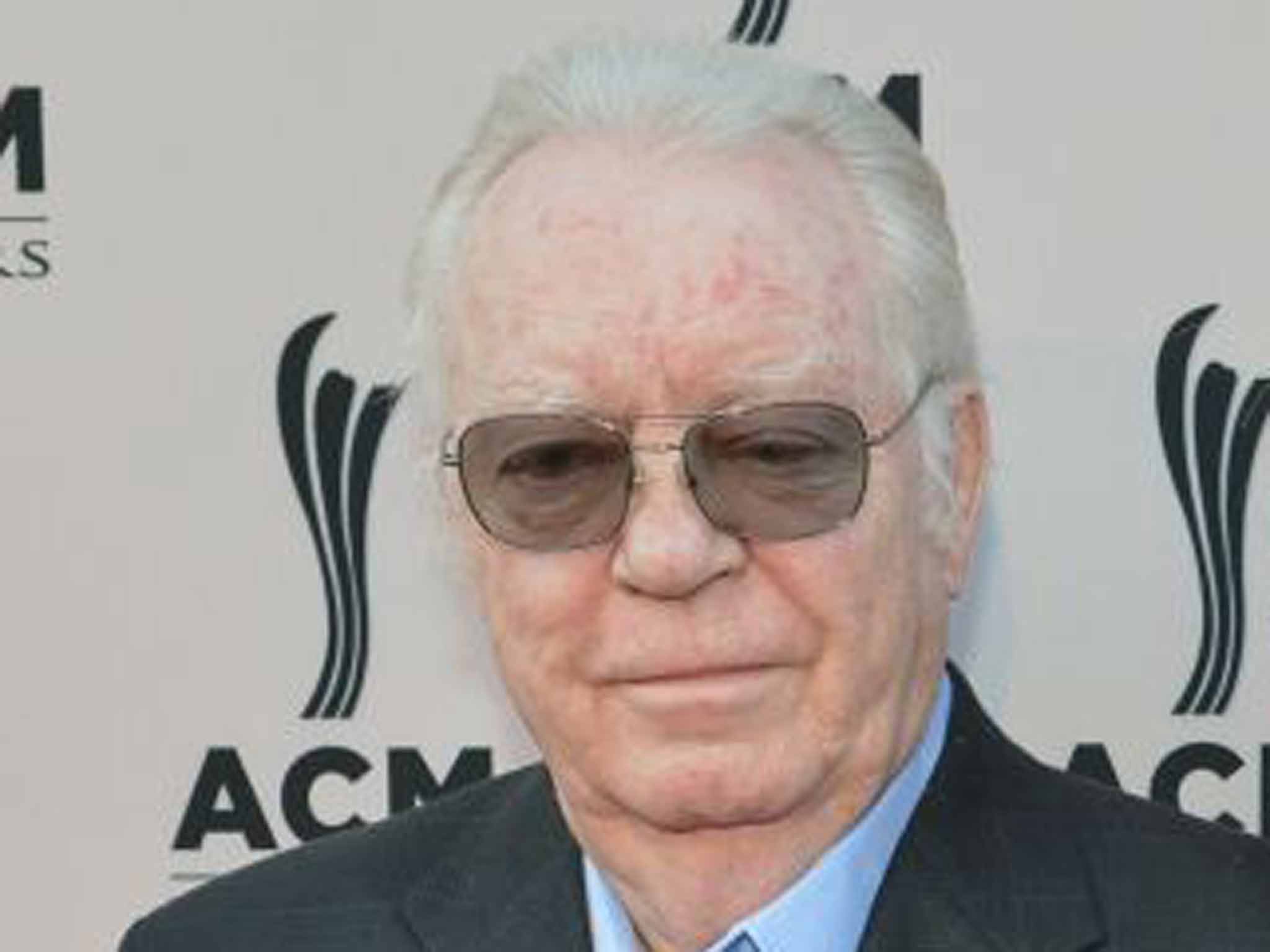Billy Sherrill: Country songwriter and producer who made Tammy Wynette and Charlie Rich household names
In 1968 he told Tammy Wynette that he had a good title, “Stand By Your Man”, but couldn't see where to take it

Your support helps us to tell the story
From reproductive rights to climate change to Big Tech, The Independent is on the ground when the story is developing. Whether it's investigating the financials of Elon Musk's pro-Trump PAC or producing our latest documentary, 'The A Word', which shines a light on the American women fighting for reproductive rights, we know how important it is to parse out the facts from the messaging.
At such a critical moment in US history, we need reporters on the ground. Your donation allows us to keep sending journalists to speak to both sides of the story.
The Independent is trusted by Americans across the entire political spectrum. And unlike many other quality news outlets, we choose not to lock Americans out of our reporting and analysis with paywalls. We believe quality journalism should be available to everyone, paid for by those who can afford it.
Your support makes all the difference.Although Billy Sherrill was a songwriter and record producer rather than a performer, he made a bigger impact than anyone else working in country music in the 1970s.
His work was loved and loathed in equal measure and many felt that his artists, some of whom were great performers, were all too often given lush, sentimental string arrangements, with a steel guitar being the only concession to country. It is, however, unlikely that Tammy Wynette or Charlie Rich would have become household names without him. Perhaps he wasn't so original, though: Chet Atkins had pursued a similarly sentimental path when producing Jim Reeves in the 60s.
Sherrill was born in Alabama in 1936. His father was a travelling preacher and the young boy would sometimes accompany him on piano. By 1956 he had taken up the saxophone and was playing in local rock'n'roll bands. In 1961 he recorded his own song “Like Makin' Love” for a single, which was covered in the same year by Marty Wilde.
In 1962 Sherrill started to work for Sun Records in their new Nashville office. It was there that he met Rich, whom he recognised as a major singer and pianist although he was not getting the breaks. Two years later, Sherrill switched to Epic Records in Nashville and he worked with the Staple Singers and Elvis Presley's guitarist Scotty Moore. Sherrill was all for mixing country music with other forms and he gave some Chuck Berry records to the country duo Jim and Jesse, which resulted in the album Berry Pickin' in the Country (1965).
In 1964 Cliff Richard came to Nashville to work with Sherrill and they recorded three hit singles: “The Minute You're Gone”, “On My Word” and “Wind Me Up (Let Me Go)”.
Sherrill had minor country hits with David Houston and, in 1966, he and another producer, Glenn Sutton, wrote “Almost Persuaded”, a classic cheating song. Houston's version topped the US country charts for nine weeks.
The following year, as well as releasing his own album, Classical Country (1967), which featured country hits played by a string quartet and a harpsichord, he teamed Houston with his latest discovery, Tammy Wynette, for another No 1, “My Elusive Dreams”. The singer was born Virginia Wynette Pugh, but Sherrill persuaded her to change her name, choosing the first name Tammy for her.
In 1968 he told Wynette that he had a good title, “Stand By Your Man”, but couldn't see where to take it. They decided to pen the song together and although it was a UK No 1, it was derided by feminists. Not that Wynette took much notice of her own lyrics: she was married five times and had an affair with Burt Reynolds.
When her third husband, George Jones, joined her at Epic in 1971, Sherrill produced many solo and duet albums for them in which they treated their life like a soap opera. Jones sang about what his wife had left behind in “The Grand Tour” (1974) and Wynette responded with “Til I Can Make It on My Own” (1976).
Two of the greatest country records are Wynette's “D-I-V-O-R-C-E” (1968) and Jones's “He Stopped Loving Her Today” (1980), although both are so overwrought that they lend themselves to satire. Indeed, the tape was left running after Jones had recorded “He Stopped Loving Her Today” and he said to Sherrill, “Nobody's gonna buy that morbid son of a bitch.” He was wrong – it was a No 1 country single and was voted the single of the year.
Sherrill also worked with Tanya Tucker, Janie Fricke, Lacy J Dalton, Barbara Mandrell and many other performers, but by and large he had created his so-called “countrypolitan” template and the vocalists were almost interchangeable. By following Sherrill's instructions, Rich had the biggest hits of his career with “The Most Beautiful Girl” and “Behind Closed Doors”, both in 1974.
In 1981 Elvis Costello came to Nashville to make a country album with Sherrill, Almost Blue, which included the hit single “Good Year for the Roses”; but a South Bank Show documentary revealed that Sherrill had little time for him.
That same year, Sherrill cut The Baron with Johnny Cash and he also worked with two of country music's greatest mavericks, Johnny Paycheck (“Take This Job and Shove It”) and David Allan Coe. In 1984 he arranged for several major country acts to sing with Ray Charles on his duets project, Friendship.
Billy Norris Sherrill, songwriter and record producer: born Phil Campbell, Alabama 5 November 1936; married (one daughter); died Nashville 4 August 2015.
Join our commenting forum
Join thought-provoking conversations, follow other Independent readers and see their replies
Comments